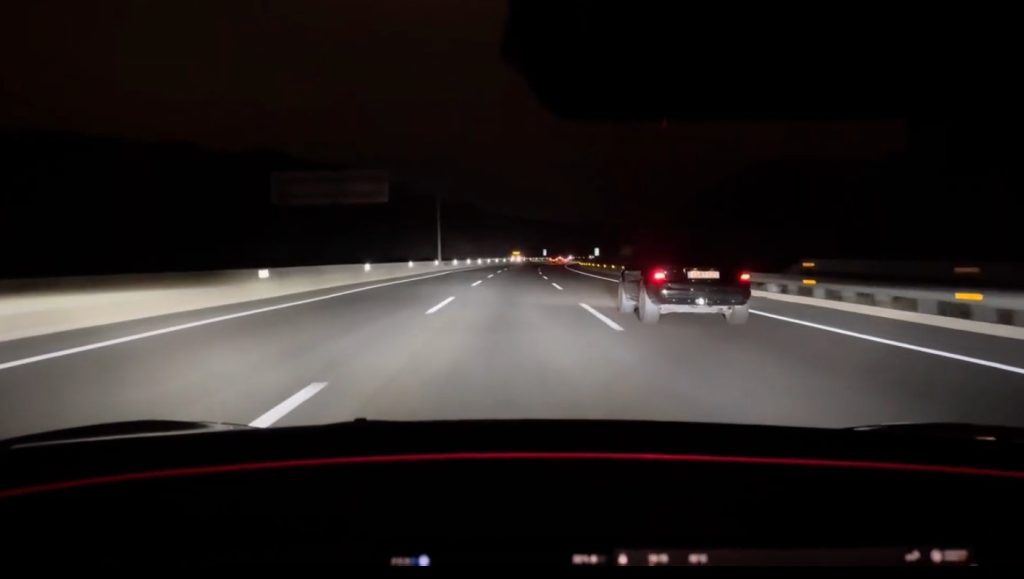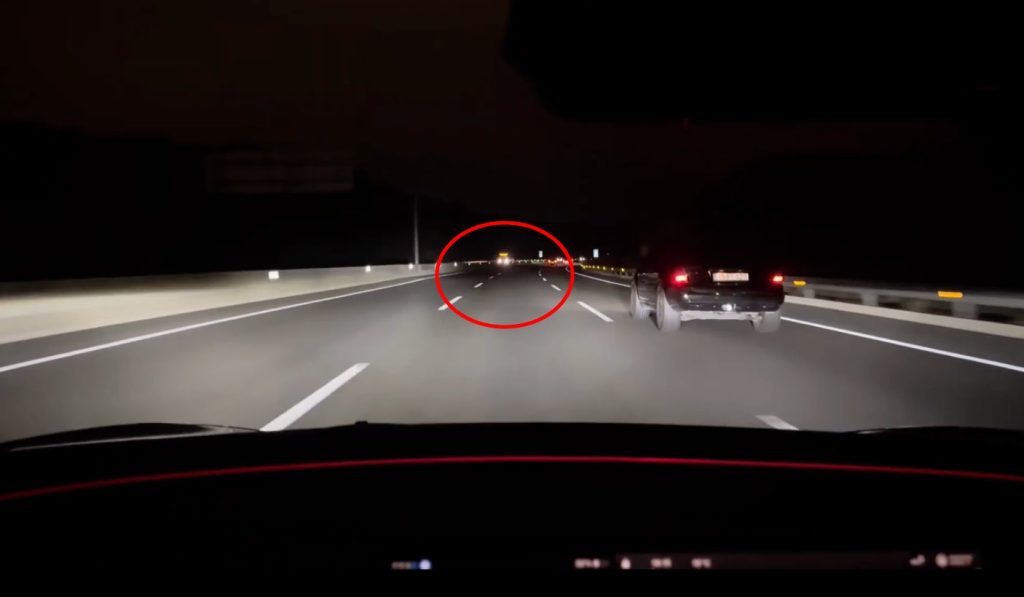News
The NJ mafia puts contract hit on Tesla
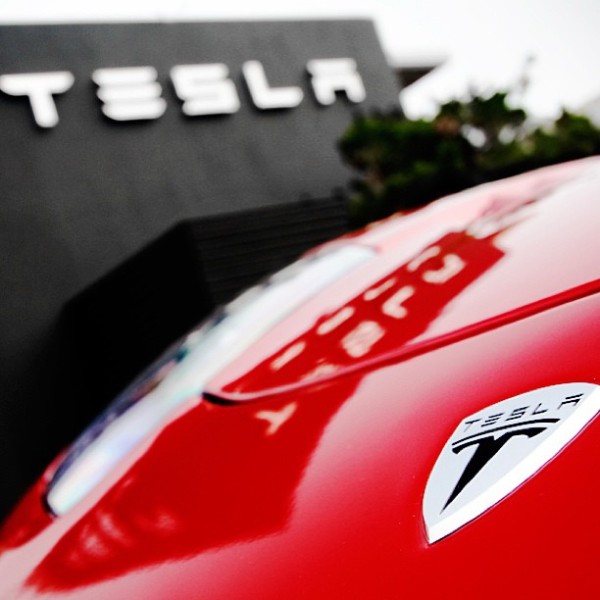
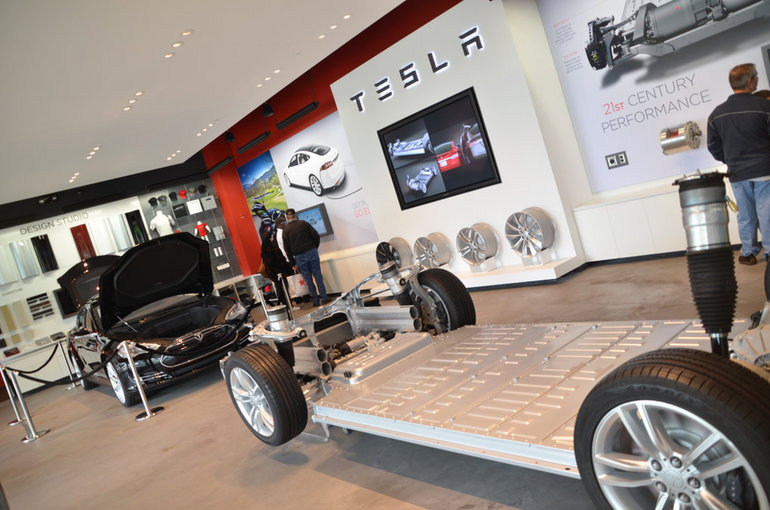
Elon Musk is always one step away from pushing the envelope further. Is calling New Jersey the mafia state enough of a wake up call?
Governor Chris Christie exemplifies modern politics clichés by turning around his previous decision legally working with Tesla Motors to follow suit with Texas and Arizona. Is there a pattern? Far from engaging in politics at Teslarati, we can’t help but wonder why those states known for their free markets ideals turned their back on the rhetoric? Where is competition and free market these days?
Does anybody remember freedom of choice?
Elon’s post rightfully reminds us of the disconnect between politicians and their constituents by saying: “the New Jersey Motor Vehicle Commission, composed of political appointees of the Governor, ended your right to purchase vehicles at a manufacturer store within the state” on his post. Governor Christie promised to put a vote to Tesla selling directly, but once the very big, and very powerful auto dealer lobby voiced their concerns, a backroom deal was cut, thus circumventing the legal process. Essentially, the auto dealer association pressures Chris Christie to force anyone buying a new vehicle through middlemen in New Jersey.
Essentially, Elon Musk accuses the Administration and the New Jersey Motor Vehicle Commission of: “going beyond their authority to implement the state’s laws at the behest of a special interest group looking to protect its monopoly at the expense of New Jersey consumers.”
Automotive Dealerships is a humongous lobby.
We’ll let you gauge how powerful the National Automotive Dealership Association is. Last year, there were 17,600 dealers of new cars and trucks in the US, yielding over $676 billion of sales, accounting for about 15 percent of all US retail activities. The automotive dealership is a substantial part of the country’s economy and its $86.8 million of dealership monies continuously spends $57 million funneled on state election across the country since 2003.
A few days back, we wrote about how the inevitable has to happen, bringing back our country to its foundation of freedom of choice. Dealerships don’t have the best reputation, and certainly very few people praise their services. Is it any wonder they push for an old, worn out self-serving business model? Tesla’s model is so modern, answers the needs of our current era and reflects a very real demand for freedom of choice. Simply put, dealerships do not offer the added services they once did, and are not able to change that quickly. Sounds familiar? Carmakers feel the same. Tesla Motors creeps under Detroit’s car manufacturers’ skin. They feel the inevitable, that change is a constant and you cannot turn around a big corporation instantly. Does that mean we don’t need car dealerships? Certainly not.
Tesla Motors is about now.
If we put everything into perspective, we find Tesla Motors answers our urgent need for elegant performance cars that run on an efficient energy means, electricity. Carmakers are left in the less enviable position of making petroleum derivative powered cars that pollute, smell bad and make awful noises. What truly isn’t fair is to expect these big carmaker and their dealerships to turn on a dime and start manufacturing batteries and electric motors. They are not tooled for this, and the investments would be gargantuan.
The Tesla stores frighten auto dealerships.
Why wouldn’t they be frightened by the Tesla stores, conveniently located inside malls, at the mercy of any onlooker? If you are relegated to the outskirts of the city, next to other car dealerships, knowing how people dread going to look for that new car, carefully maneuvering pushy salesmen, deciphering the unintelligible jargon and financing pitfalls, wouldn’t you fear Tesla? What do you do against a Tesla store that has a list of Model S drivers who will let you ride and sometimes drive their personal car? Know anyone who that with the internal combustion engine (ICE) drivers? Neither do we. But, why would you fight this marvelous system?
In the meantime, it’s hard not to feel sorry for politicians seeing constituents losing faith and car dealership lobbies facing better business models. Would you be frightened, or would you take the opportunity to change and adapt, once and for all?

News
Tesla to improve one of its best features, coding shows
According to the update, Tesla will work on improving the headlights when coming into contact with highly reflective objects, including road signs, traffic signs, and street lights. Additionally, pixel-level dimming will happen in two stages, whereas it currently performs with just one, meaning on or off.
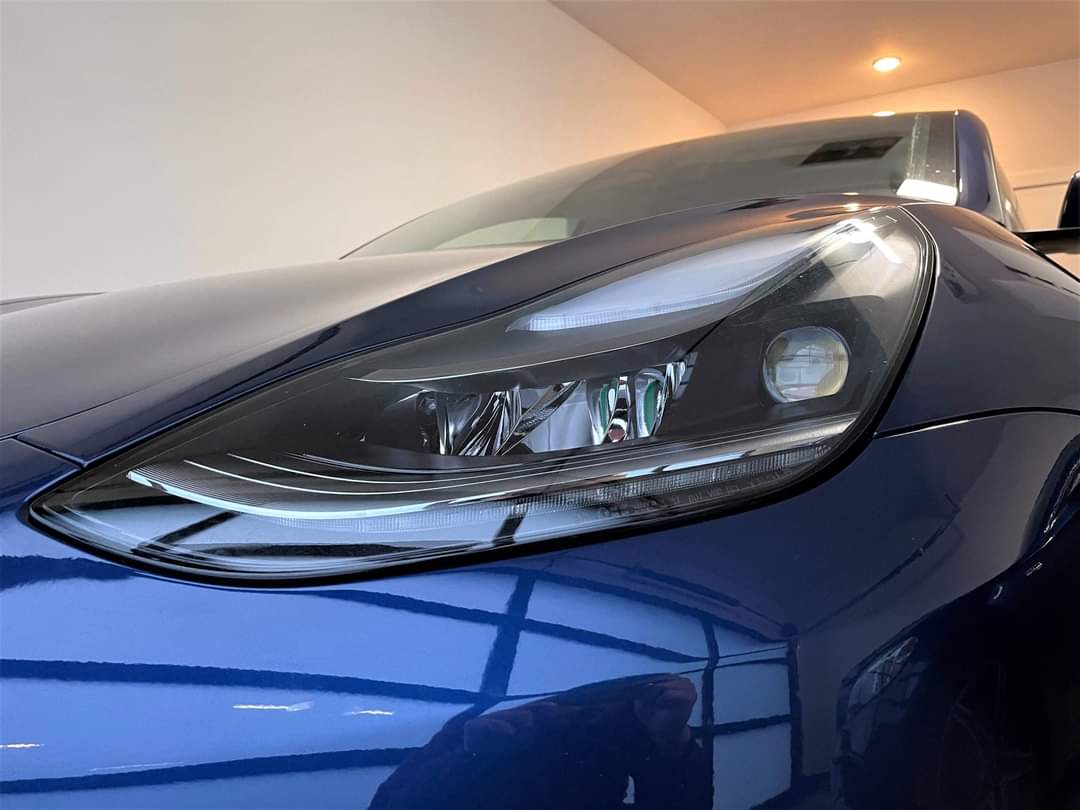
Tesla is looking to upgrade its Matrix Headlights, a unique and high-tech feature that is available on several of its vehicles. The headlights aim to maximize visibility for Tesla drivers while being considerate of oncoming traffic.
The Matrix Headlights Tesla offers utilize dimming of individual light pixels to ensure that visibility stays high for those behind the wheel, while also being considerate of other cars by decreasing the brightness in areas where other cars are traveling.
Here’s what they look like in action:
- Credit: u/ObjectiveScratch | Reddit
- Credit: u/ObjectiveScratch | Reddit
As you can see, the Matrix headlight system intentionally dims the area where oncoming cars would be impacted by high beams. This keeps visibility at a maximum for everyone on the road, including those who could be hit with bright lights in their eyes.
There are still a handful of complaints from owners, however, but Tesla appears to be looking to resolve these with the coming updates in a Software Version that is currently labeled 2026.2.xxx. The coding was spotted by X user BERKANT:
🚨 Tesla is quietly upgrading Matrix headlights.
Software https://t.co/pXEklQiXSq reveals a hidden feature:
matrix_two_stage_reflection_dip
This is a major step beyond current adaptive high beams.
What it means:
• The car detects highly reflective objects
Road signs,… pic.twitter.com/m5UpQJFA2n— BERKANT (@Tesla_NL_TR) February 24, 2026
According to the update, Tesla will work on improving the headlights when coming into contact with highly reflective objects, including road signs, traffic signs, and street lights. Additionally, pixel-level dimming will happen in two stages, whereas it currently performs with just one, meaning on or off.
Finally, the new system will prevent the high beams from glaring back at the driver. The system is made to dim when it recognizes oncoming cars, but not necessarily objects that could produce glaring issues back at the driver.
Tesla’s revolutionary Matrix headlights are coming to the U.S.
This upgrade is software-focused, so there will not need to be any physical changes or upgrades made to Tesla vehicles that utilize the Matrix headlights currently.
Elon Musk
xAI’s Grok approved for Pentagon classified systems: report
Under the agreement, Grok can be deployed in systems handling classified intelligence analysis, weapons development, and battlefield operations.

Elon Musk’s xAI has signed an agreement with the United States Department of Defense (DoD) to allow Grok to be used in classified military systems.
Previously, Anthropic’s Claude had been the only AI system approved for the most sensitive military work, but a dispute over usage safeguards has reportedly prompted the Pentagon to broaden its options, as noted in a report from Axios.
Under the agreement, Grok can be deployed in systems handling classified intelligence analysis, weapons development, and battlefield operations.
The publication reported that xAI agreed to the Pentagon’s requirement that its technology be usable for “all lawful purposes,” a standard Anthropic has reportedly resisted due to alleged ethical restrictions tied to mass surveillance and autonomous weapons use.
Defense Secretary Pete Hegseth is scheduled to meet with Anthropic CEO Dario Amodei in what sources expect to be a tense meeting, with the publication hinting that the Pentagon could designate Anthropic a “supply chain risk” if the company does not lift its safeguards.
Axios stated that replacing Claude fully might be technically challenging even if xAI or other alternative AI systems take its place. That being said, other AI systems are already in use by the DoD.
Grok already operates in the Pentagon’s unclassified systems alongside Google’s Gemini and OpenAI’s ChatGPT. Google is reportedly close to an agreement that will result in Gemini being used for classified use, while OpenAI’s progress toward classified deployment is described as slower but still feasible.
The publication noted that the Pentagon continues talks with several AI companies as it prepares for potential changes in classified AI sourcing.
Elon Musk
Elon Musk denies Starlink’s price cuts are due to Amazon Kuiper
“This has nothing to do with Kuiper, we’re just trying to make Starlink more affordable to a broader audience,” Musk wrote in a post on X.

Elon Musk has pushed back on claims that Starlink’s recent price reductions are tied to Amazon’s Kuiper project.
In a post on X, Musk responded directly to a report suggesting that Starlink was cutting prices and offering free hardware to partners ahead of a planned IPO and increased competition from Kuiper.
“This has nothing to do with Kuiper, we’re just trying to make Starlink more affordable to a broader audience,” Musk wrote in a post on X. “The lower the cost, the more Starlink can be used by people who don’t have much money, especially in the developing world.”
The speculation originated from a post summarizing a report from The Information, which ran with the headline “SpaceX’s Starlink Makes Land Grab as Amazon Threat Looms.” The report stated that SpaceX is aggressively cutting prices and giving free hardware to distribution partners, which was interpreted as a reaction to Amazon’s Kuiper’s upcoming rollout and possible IPO.
In a way, Musk’s comments could be quite accurate considering Starlink’s current scale. The constellation currently has more than 9,700 satellites in operation today, making it by far the largest satellite broadband network in operation. It has also managed to grow its user base to 10 million active customers across more than 150 countries worldwide.
Amazon’s Kuiper, by comparison, has launched approximately 211 satellites to date, as per data from SatelliteMap.Space, some of which were launched by SpaceX’s Falcon 9 rocket. Starlink surpassed that number in early January 2020, during the early buildout of its first-generation network.
Lower pricing also aligns with Starlink’s broader expansion strategy. SpaceX continues to deploy satellites at a rapid pace using Falcon 9, and future launches aboard Starship are expected to significantly accelerate the constellation’s growth. A larger network improves capacity and global coverage, which can support a broader customer base.
In that context, price reductions can be viewed as a way to match expanding supply with growing demand. Musk’s companies have historically used aggressive pricing strategies to drive adoption at scale, particularly when vertical integration allows costs to decline over time.
